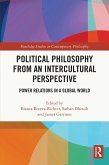This volume addresses, from a Wittgensteinian perspective, the philosophical question of how to understand other cultures. In so doing, it brings into discussion Wittgensteinian and other cultural philosophical traditions, stemming notably from the West African Yoruba community, Japan, China, and India. The book is therefore not just about intercultural understanding, but also brings together, under the umbrella of Wittgensteinian philosophy, a plurality of cultural voices and philosophical cultures, and sets out to develop an approach to the question of intercultural understanding that emphasises the connection between its epistemological, ethical and political aspects.
We propose that the Wittgensteinian tradition - spanning not only Wittgenstein's own corpus but also the work of other prominent and up-and-coming philosophers directly influenced by Wittgenstein - is ideally suited to this task, insofar as it is already fully versant with the two central notions at play: the notion of culture and that of understanding.
The book is divided into two parts, each of which includes six papers. Part I presents a series of new proposals on how best to model intercultural understanding. Part II examines a new set of challenges to intercultural understanding, stemming from relativism, the philosophy of disagreement and the problem of cultural othering, amongst others. The contributions to this volume build on a wealth of Wittgensteinian strategies and methodologies to develop an imaginative, fresh portfolio of philosophical responses to the intercultural question, as well as strategies for addressing the special challenges it poses.
We propose that the Wittgensteinian tradition - spanning not only Wittgenstein's own corpus but also the work of other prominent and up-and-coming philosophers directly influenced by Wittgenstein - is ideally suited to this task, insofar as it is already fully versant with the two central notions at play: the notion of culture and that of understanding.
The book is divided into two parts, each of which includes six papers. Part I presents a series of new proposals on how best to model intercultural understanding. Part II examines a new set of challenges to intercultural understanding, stemming from relativism, the philosophy of disagreement and the problem of cultural othering, amongst others. The contributions to this volume build on a wealth of Wittgensteinian strategies and methodologies to develop an imaginative, fresh portfolio of philosophical responses to the intercultural question, as well as strategies for addressing the special challenges it poses.
Dieser Download kann aus rechtlichen Gründen nur mit Rechnungsadresse in A, D ausgeliefert werden.









